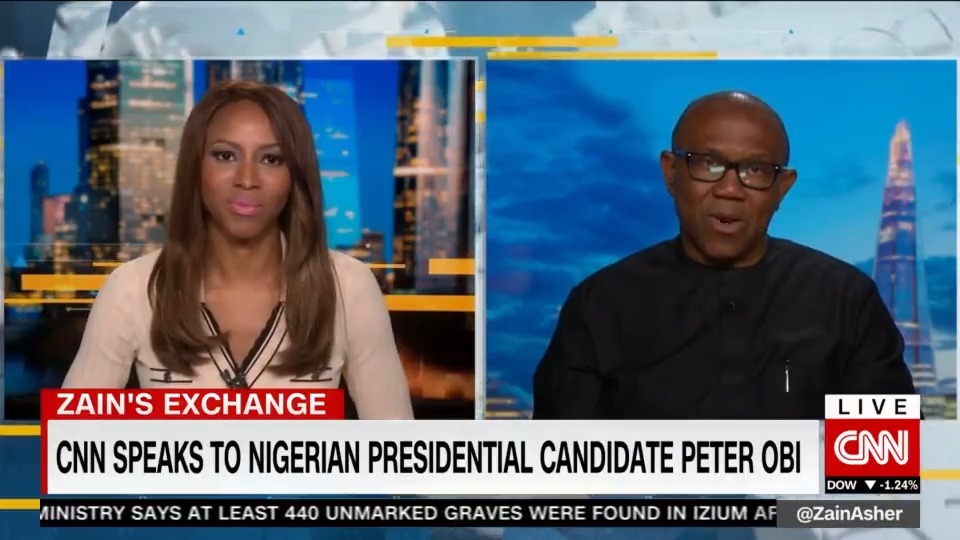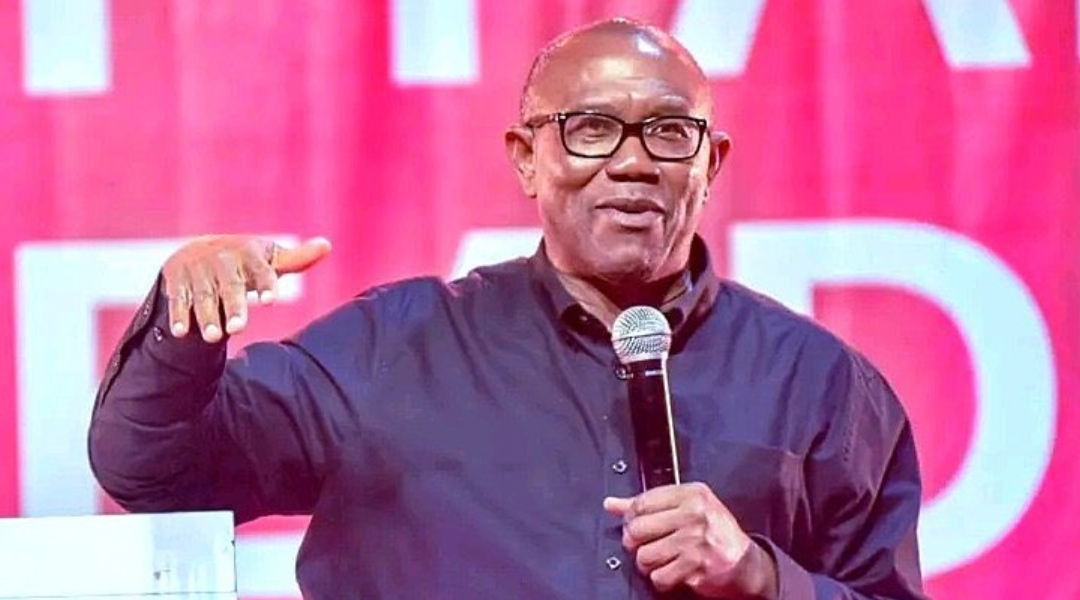Nigeria, according to Peter Obi, the Labour Party’s presidential candidate for the 2023 general elections, is on the verge of collapse and needs to be saved right away.

Nigeria is currently in danger of collapsing and is not simply in a physical disaster. No one in the north has a safe place to live, adequate roads, or access to cheaper bread than those in the south. So are people in the south,” the former governor of Anambra State stated on CNN on Friday.
READ ALSO: Keyamo Tackles NLC Over Obi’s Promise To Eliminate Fuel Subsidy
Obi added that he will deal with the corruption problem, lower the expense of government, and deal with insecurity because it is harming the economy.
“The state police issue needs to be resolved quickly. Because security is currently the most pressing demand in Nigeria, more personnel must be added to the security system, equipped adequately, and motivated appropriately, according to Obi.
The next election, he argued, shouldn’t be decided by “it’s my turn,” but rather by a person’s integrity, ability, competence, and willingness to uphold moral principles.
He claims that ethnicity is a long-standing plot to keep Nigeria underdeveloped. As a result, Obi declared that he will “dismantle” the “system of criminality” that elevates politicians to positions of power.
READ ALSO: Reno Omokri Claims Peter Obi Is An IPOB-Compliant Candidate
In response to a question about how he plans to address Nigeria’s many problems, Obi stated that “if you have a leader that is competent, has the capacity and commitment to start dealing with it, you are not going to solve it overnight but there will be a clear, visible, measurable attempt to deal with it and they are things that are solvable, they are things that can be dealt with decisively.”
“Our refinery should operate without issue. There is no justification for us not to support the construction and management of refineries by the private sector. Additionally, they are not difficult to complete and can be done as soon as possible.
He said, “Today, you can choose to remove the fuel subsidy, use the funds to assist a crucial area of production, from critical infrastructure to education, which will be completed in the shortest amount of time.



















